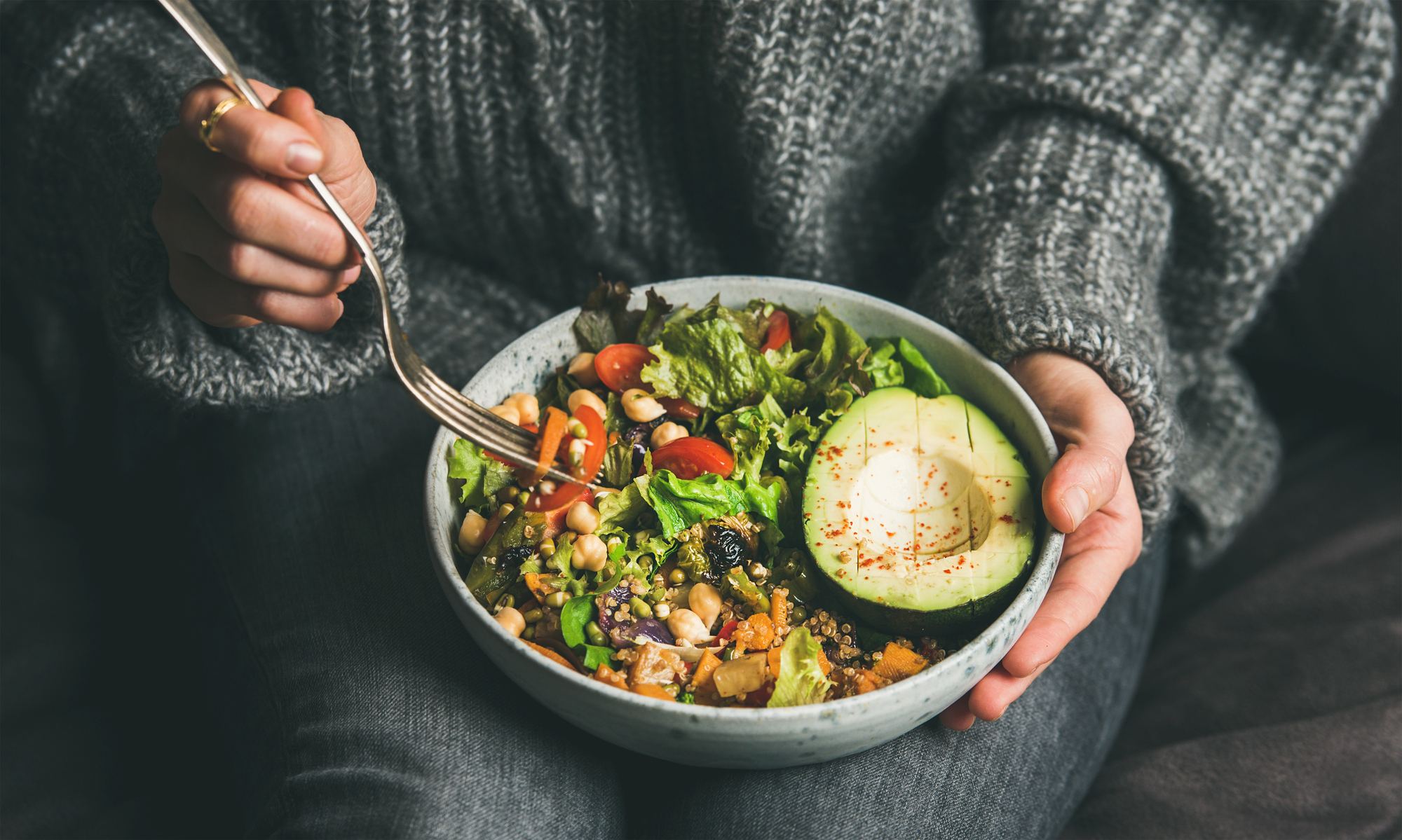In the quest for a healthier lifestyle, we are often met with a myriad of dietary choices, each promising to be the key to vitality and well-being. Holistic nutrition embodies a comprehensive approach to eating that embraces whole, unprocessed foods and recognizes their importance in supporting overall health. By focusing on plants (vegetables, fruits, whole grains, legumes, seeds, and nuts), we emphasize essential nutrients for the body’s healing and maintenance. Diverse and rich in colors, these unrefined foods supply our bodies with a spectrum of vitamins, minerals, fibers, and antioxidants, all critical to our well-being.
The principles of holistic nutrition are grounded in the idea that food not only fuels our bodies but can potentially prevent and, in some cases, reverse disease. By selecting foods that bolster our immune system and reduce inflammation, we can address the root causes of illness rather than just treating symptoms. Emphasizing gut health is paramount, as a balanced microbiome is linked to improved immunity, digestion, and mental health.
Incorporating whole foods into our diet also provides natural energy, steering us away from the highs and lows associated with sugar and caffeine spikes. This approach to eating pushes us towards a lifestyle that is not only physically healthy but also mentally and emotionally beneficial, highlighting the interconnectedness of our dietary choices with every facet of our lives.
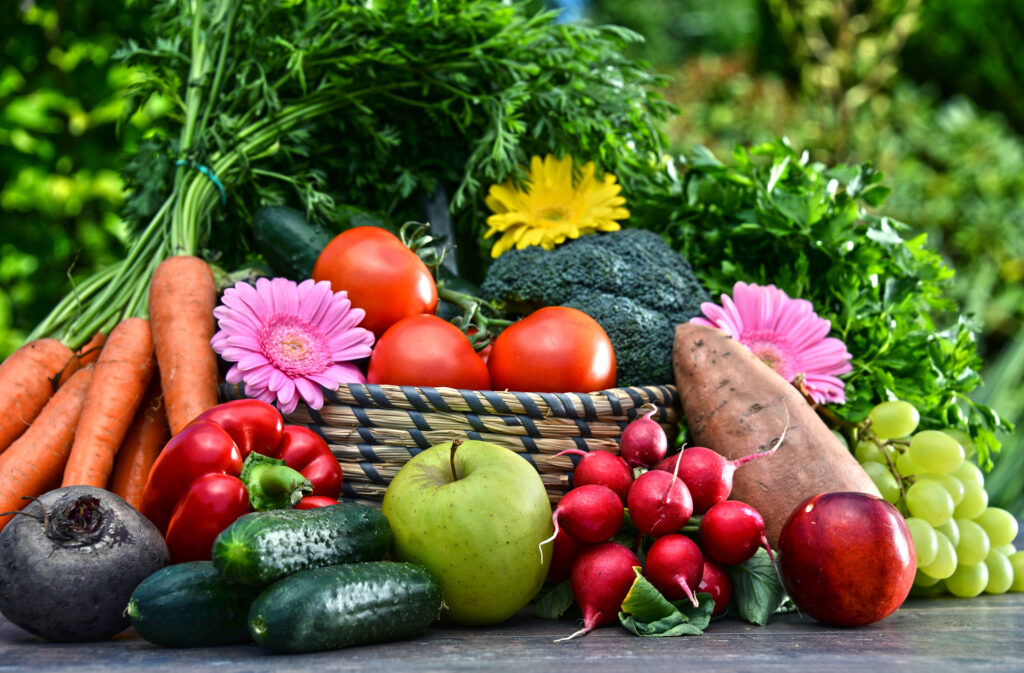
Fundamentals of Holistic Nutrition
In holistic nutrition, we focus on healing and fueling the body with whole, plant-based foods, which play vital roles in disease reversal and gut health.
Principles of Whole Foods
Whole foods are unprocessed, unrefined, or processed and refined as little as possible before consumption. They are the bedrock of holistic nutrition, providing the essential nutrients our bodies need to heal and thrive.
- Rich in Nutrients: Unlike processed foods, whole foods retain their nutritional integrity with a wealth of vitamins, minerals, and antioxidants.
- Natural Energy: The complex carbohydrates in whole foods deliver steady energy throughout the day without the spikes and crashes associated with refined sugars.
Examples of Whole Foods:
- Colorful fruits and green leafy vegetables
- Whole grains like brown rice and quinoa
- Nuts and seeds like pumpkin seeds and almonds
- Legumes like beans, chickpeas, and lentils
Understanding Plant-Based Nutrition
Plant-based nutrition emphasizes foods derived from plants, with few or no animal products, aligning closely with whole food principles.
- Diverse in Protein: We can obtain all essential amino acids from plants by consuming a variety of legumes, nuts, seeds, and grains.
- Disease Prevention: A plant-based diet is associated with a lower risk of heart disease, high blood pressure, diabetes, and certain cancers.
Key Components of a Plant-Based Diet:
- Fruits and Vegetables: Incorporate a wide range to provide a spectrum of vitamins and phytonutrients. Eat the Rainbow!
- Whole Grains: Great source of fiber and energy-sustaining carbohydrates.
- Protein Sources: Including tofu, tempeh, legumes, and quinoa.
- Healthy Fats: Examples are avocados, olive oil, and nuts.
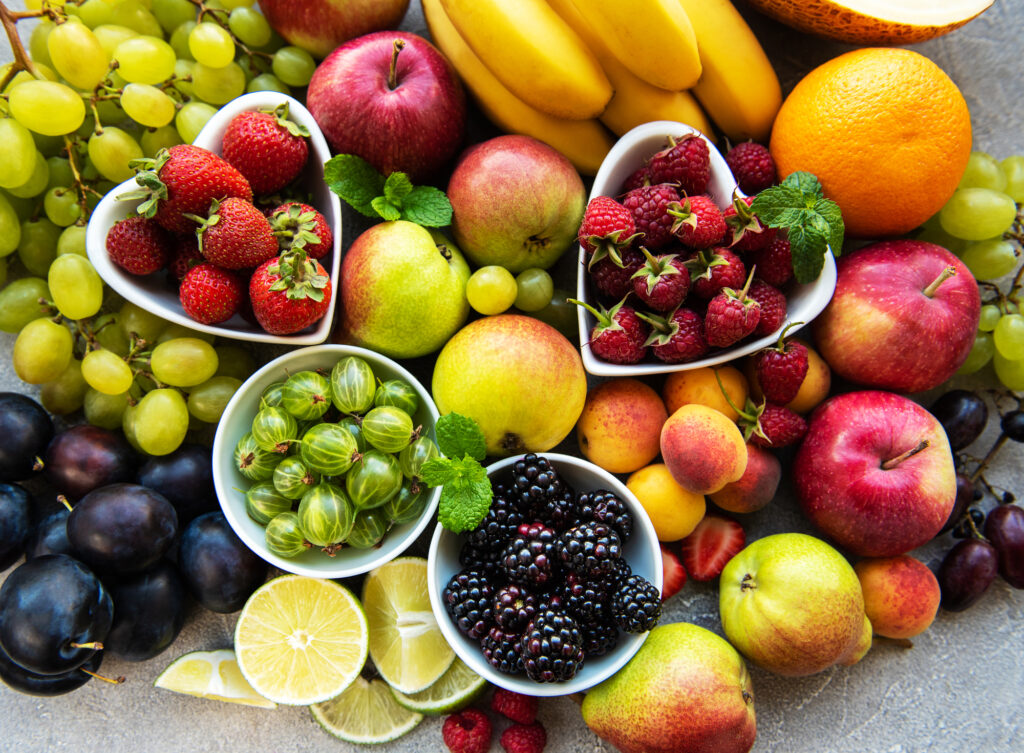
Benefits of Whole Foods
Incorporating whole foods into our diet is foundational for optimal health. These nutrient-dense foods provide various benefits, particularly in disease prevention and gut health.
Prevention and Reversal of Disease
- Heart Disease: A diet rich in whole foods, especially plant-based, can significantly lower the risk of heart disease. We see this effect from a high intake of fruits, vegetables, and whole grains, which help reduce cholesterol levels and blood pressure.
- Diabetes: Regular consumption of whole foods such as legumes and nuts has reduced the risk of developing type 2 diabetes. For those already diagnosed, a whole-food diet can aid in stabilizing blood sugar levels.
Optimizing Gut Health
- Digestive Support: Whole foods are abundant in fiber, which aids in maintaining a healthy digestive tract. A well-functioning digestive system is vital to absorbing nutrients effectively.
- Microbiome Balance: Whole foods’ diverse range of nutrients feeds the beneficial bacteria in our gut. A balanced gut microbiome is essential for digestion and a robust immune system.
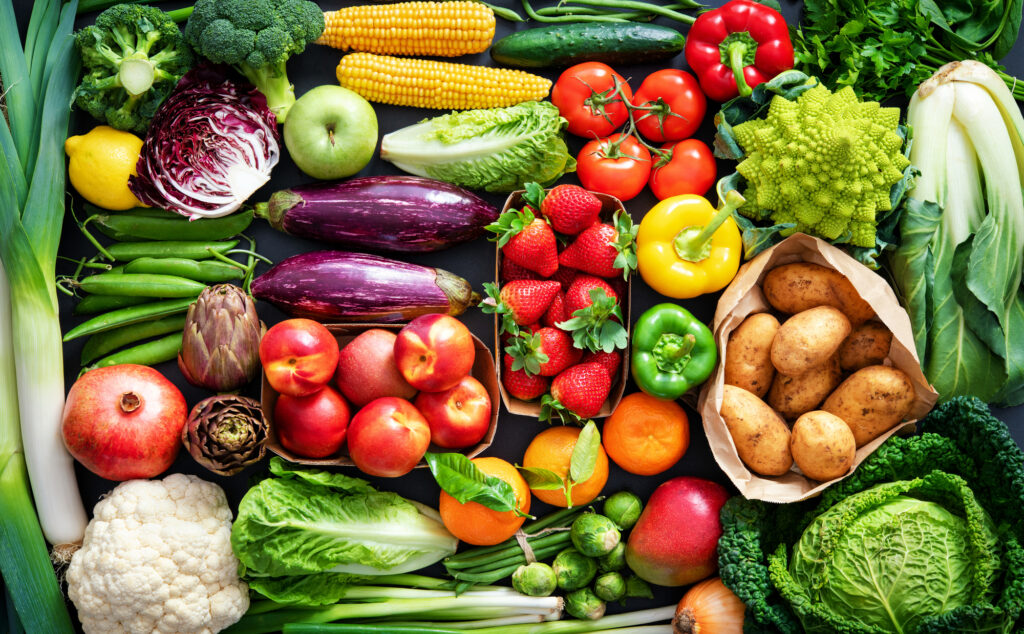
Whole Foods for Healing
Adopting a whole-food diet is instrumental in harnessing the body’s natural ability to heal. We focus on specific, healing foods that provide dense nutrition and reduce inflammation, thus supporting the healing process.
Nutrient-Rich Food Choices
Fruits and Vegetables: Packed with essential vitamins, minerals, and fiber, fruits and vegetables are cornerstones of a whole foods diet. For instance, dark leafy greens like spinach and kale are high in iron and calcium, while dark berries contain antioxidants.
- Whole Grains: Foods such as quinoa, brown rice, and oats contain B vitamins, which are vital for energy and nervous system function. They also provide sustainable energy and support gut health due to their fiber content.
- Legumes, Nuts, and Seeds are excellent sources of plant-based protein, healthy fats, and nutrients like magnesium and zinc. For example, almonds are rich in vitamin E, while lentils offer iron and potassium.
Anti-Inflammatory Foods
Omega-3 Rich Foods: Incorporate flaxseeds, chia seeds, and walnuts into your diet to increase omega-3 fatty acids, which are known for their anti-inflammatory properties.
- Herbs and Spices: Turmeric, ginger, and cinnamon add flavor and contain compounds that can help reduce inflammation throughout the body.
- Healthy Fats: Foods like avocados and olive oil offer monounsaturated fats, which are integral in reducing inflammation. Additionally, they assist in absorbing fat-soluble vitamins such as Vitamins A, D, E, and K.
By selecting nutrient-dense and anti-inflammatory foods, we support our body’s healing mechanisms and contribute to a more robust, resilient system.
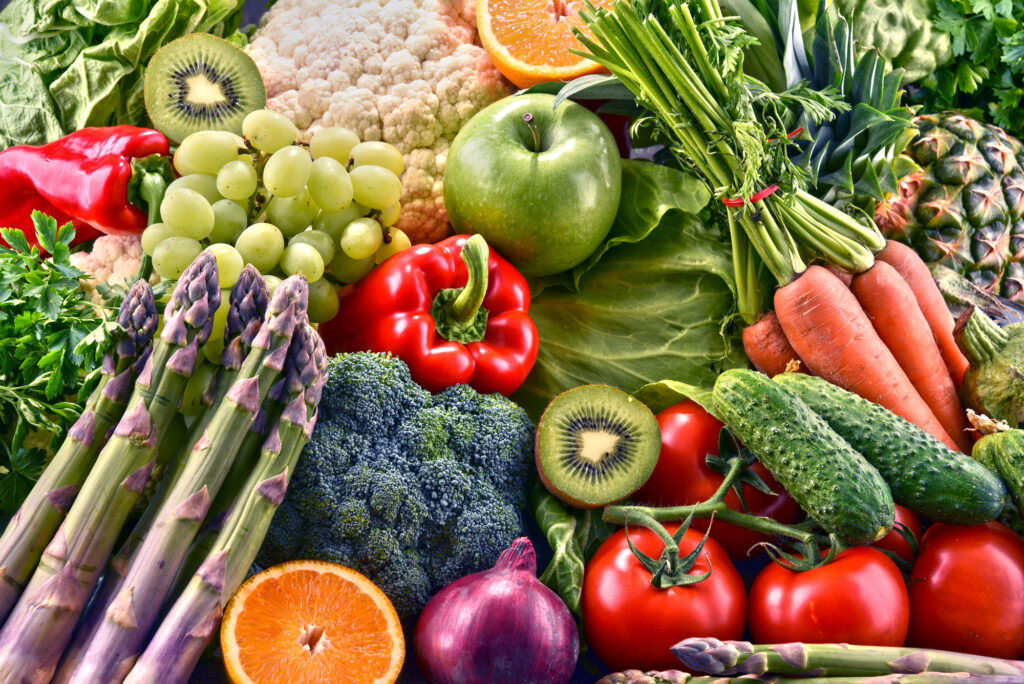
Energizing Through Natural Foods
We understand that the foods we eat significantly affect how energized we feel throughout the day. Natural, whole foods are essential in providing sustained energy and supporting healthy eating habits that form the core of a vibrant lifestyle.
Sustained Energy Sources
When we choose our energy sources, we focus on complex carbohydrates, healthy fats, and proteins. These macronutrients break down slowly in the body, providing a steady stream of energy without the crash associated with high-sugar, refined foods.
- Complex Carbohydrates: Found in foods like quinoa, oats, and sweet potatoes, these not only offer energy but also deliver fiber, vitamins, and minerals.
- Healthy Fats: Avocados, nuts, and seeds contribute to a feeling of fullness and provide essential fatty acids that our bodies need for energy production.
- Proteins: Incorporating plant-based proteins such as lentils, beans, and tofu supports muscle repair and sustained energy levels.
Adapting to Healthy Eating Habits
Adopting healthy eating habits is a process that involves making deliberate choices and sometimes gradual changes in our diet. We prioritize whole, unprocessed foods and include various nutrients in every meal. Here are some practical steps to help us adapt:
- Start with Breakfast: A high-energy breakfast can set the tone for the day. Try a bowl of steel-cut oats with nuts and berries.
- Plan Your Meals: Ensure each meal has a good balance of carbs, fats, and proteins.
- Snack Wisely: Choose snacks like fruit or vegetable sticks with hummus that provide nutrients and energy without a sugar crash.
- Hydration: Drink plenty of water throughout the day to aid digestion and nutrient absorption.
Developing a Holistic Lifestyle
As we adopt holistic nutrition principles, we appreciate food as medicine. Each meal becomes an opportunity to fuel our bodies optimally, reduce inflammation, and boost our immune systems. This natural approach to eating is not a temporary diet but a lifelong journey toward sustaining our health and vigor. Through a mindful selection of food, we empower ourselves to live a better life with energy and health so that we can enjoy each day to its fullest.


